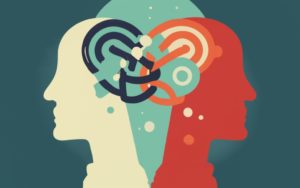Do you ever feel like you’re stuck in patterns of behavior or emotions that you just can’t seem to shake? Do you struggle with feelings of shame or inadequacy, even though logically you know they don’t make sense? If so, you may be dealing with the effects of childhood or complex trauma.
But don’t worry, there’s hope. That’s where NARM comes in.
NARM (The Neuro Affective Relational Model) is a somatically based psychotherapy developed by Dr. Laurence Heller that addresses nervous system dysregulation and distortions of identity resulting from childhood and complex trauma.
So, what does that mean? Well, let’s break it down.
First of all, “somatic” just means that NARM works with the body, not just the mind. This is important because trauma doesn’t just affect our thoughts and emotions, it also affects our nervous system and how our body feels and functions.
Secondly, NARM focuses on the relationship between nervous system dysregulation and distortions of identity. Basically, when we experience trauma, it can dysregulate our nervous system and leave us feeling stuck in certain patterns of behavior or emotions. Over time, these patterns can become part of our identity, even if they don’t serve us anymore.
So, how does NARM work? Well, it’s all about helping you regulate your nervous system and reconnect with your true self.
Through a series of gentle and respectful techniques, NARM helps you become aware of the patterns that are keeping you stuck, and then works with you to regulate your nervous system and release those patterns. This process can help you rediscover your true self, free from the distortions of identity that were created by your trauma.
But here’s the thing: NARM isn’t just about “fixing” you. It’s about helping you become more fully yourself, with all the messy and imperfect parts that make you unique. It’s about learning to embrace your emotions and experiences, even the difficult ones, and using them as a source of strength and resilience.
So, if you’re dealing with the effects of childhood or complex trauma, don’t give up hope. NARM may be just what you need to find your way back to yourself.




